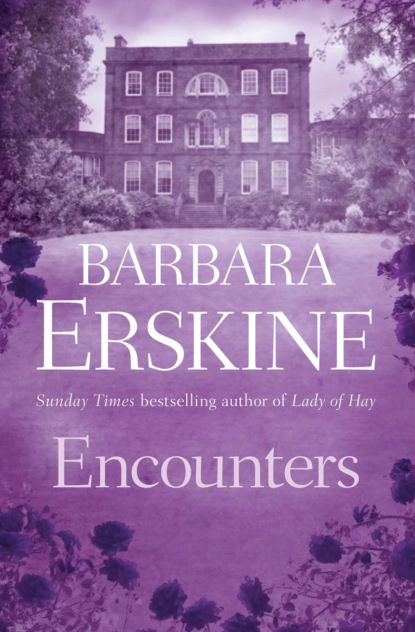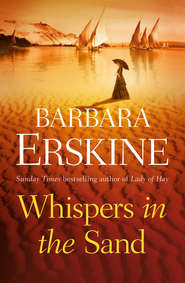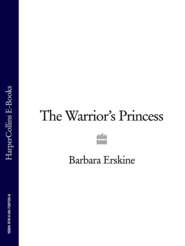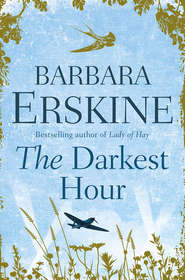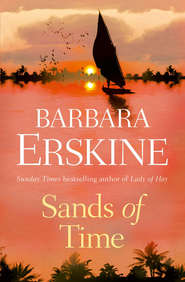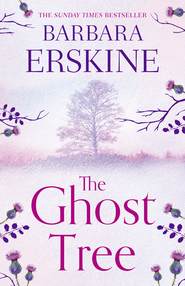По всем вопросам обращайтесь на: info@litportal.ru
(©) 2003-2024.
✖
Encounters
Автор
Год написания книги
2018
Настройки чтения
Размер шрифта
Высота строк
Поля
Someone to Dream About (#litres_trial_promo)
A Fair Revenge (#litres_trial_promo)
Milestones (#litres_trial_promo)
The Magic Carpet (#litres_trial_promo)
The Proposal (#litres_trial_promo)
Spaces (#litres_trial_promo)
Marcus Nicholls (#litres_trial_promo)
Salesmanship! (#litres_trial_promo)
A Quest For Identity (#litres_trial_promo)
Such a Silly Thing (#litres_trial_promo)
The Heart Will Understand (#litres_trial_promo)
Party Games (#litres_trial_promo)
A Stranger With no Name (#litres_trial_promo)
Just an Old-Fashioned Girl (#litres_trial_promo)
All This Childish Nonsense (#litres_trial_promo)
A Love Story (#litres_trial_promo)
A Window on the World (#litres_trial_promo)
A Promise of Love (#litres_trial_promo)
Excavations (#litres_trial_promo)
Keep Reading Barbara Erskine’s Novels (#litres_trial_promo)
Keep Reading Sleeper's Castle (#litres_trial_promo)
About the Author (#litres_trial_promo)
Also by Barbara Erskine (#litres_trial_promo)
About the Publisher (#litres_trial_promo)
Preface (#uf3fe027c-6611-5753-baa3-d7c832dcc5de)
I have always loved reading short stories and, like many authors, tested my literary wings experimenting with them. At first glance anyway, the short story seems an easy route for the beginner, largely because it is, axiomatically, short; one is not aiming for some distant horizon two or three hundred thousand words away. Short stories are self contained, feisty, fun; they are tricky, challenging – compact crystallizations, each of which must have as much substance in its own way as its big brother, the novel.
Having started to write them, hooked by the lure of so many plots, so many characters, so many scenes and the technical challenge of construction, I have found that I cannot resist the form, and this selection is taken from the hundreds I have written over the past fifteen years.
I did not plan to be a short story writer. I wanted to be a novelist – specifically a historical novelist – and it was years ago while a student at university in Scotland that I decided to write my first novel, the story of Robert the Bruce and the woman who set the crown of Scotland on his head. Consumed with excitement as I worked on the outline, spending much more time on it than I did on my studies, I visited the sites of the story and, absorbing the atmosphere, walked alone along mist-shrouded rivers and around the remains of countless castles. I wrote several thousand words, then I stopped. I realized I couldn’t go, on. I hadn’t the experience of writing or of life to cope with the huge task I had set myself. Quietly and sadly I put my manuscript away. I knew I would write it one day – but not yet. (That book eventually became Kingdom of Shadows and, secretly, I incorporated those few thousand words unchanged into it – a debt to that student writer who had felt Robert and Isobel’s suffering but had not then been able to put it down on paper.)
My confidence was shaken. I had wanted to be a writer since I was three years old and yet I had fallen at the first major fence. It was a case of wanting to run before I could walk. Obviously I had an apprenticeship to serve and so came the idea of trying to write short stories. I studied the markets and began to write articles and stories to fit those markets. Miraculously the first story I wrote was accepted and published by the London Evening News. I was much encouraged!
It was when we went to live in the Welsh Borders that again the longing to write historical fiction grew too strong to resist and I recognized consciously for the first time that I was one of those writers for whom the spirit of place is all important. The land around me, the hills, the forests, the seas, evoke echoes I cannot ignore. I have to write about them. I have to try and make my readers see and hear and even smell the landscape and its history as I see and hear and feel it.
Once more I began to plan a novel and this time I felt I had the experience and the confidence to do it. Not the story of Robert and Isobel – I still wasn’t ready for that – but a novel of history and passion and mystery which was born of the mysterious, ancient landscape around me.
While I read and researched and visited the sites which were to become the background for Lady of Hay I went on writing short stories and, eventually, half a dozen short historical romances as well, perhaps to complete my apprenticeship before at last I could start writing the big novel.
But by now I enjoyed writing short stories too much to stop. Heavily involved in a book full of passion and hatred and fear it is nice to come up for air from time to time to write a humorous story, or an unashamedly sentimental one; a modern thriller or a plain old-fashioned love story, and I have chosen some of each of these for this collection. There are also, of course, ghost stories and a couple of stories where the past and the present slide together and the curtain which separates us from the past is temporarily drawn aside. Most of the stories are about places as much as about the people who find themselves within them, and most of them are, in one way or another, about encounters. I hope you enjoy them.
Barbara Erskine
Great Tey, 1989
A Step Out of Time (#uf3fe027c-6611-5753-baa3-d7c832dcc5de)
The house at the end of the long, winding drive was elegant Georgian. The windows, all perfectly proportioned, looked out across sweeping lawns – not quite as smooth as they might have been, but nevertheless beautiful – towards the Black Mountains, brooding in the heat haze of the August afternoon.
Looking through the windscreen Victoria tried to suppress the quick catch of excitement which she felt in her throat. They had already seen so many houses which looked idyllic. Before there had always been a snag. This house, she felt suddenly, would be right; it was as if, in some secret part of herself, she knew it already. She glanced at Robert and saw that he felt it too: the hope, the anticipation, the agitation. When they found the right house it was going to be very special. Their home. The first since he had come out of the army. The place where they could start their new life.
The young man from the house agent was waiting for them, standing beneath the porticoed entrance proprietorially jangling the keys as they drew to a halt. Robert glanced at Victoria and winked as he set about climbing stiffly out of the car. She fumbled with the door handle, not wanting to watch, knowing better than to help. Each time it was easier. Each time it hurt him less. Each time the excitement that this might be The House helped.
They shook hands and the agent, introducing himself as William Turner, inserted the key in the lock and pushed open the heavy door. Beyond it a cavernous hall opened up, elegantly if sparsely furnished, with at the far end of it a graceful staircase winding up to a galleried landing. There was a faint smell of dogs.
‘Lady Penelope is away this weekend.’ William’s voice was reverently hushed. ‘So we can go all over the house as we like.’
They followed him soberly from drawing room to dining room to sitting room to morning room – a room for every hour of the day – and on through to the large north-facing kitchen.
‘Not modernized, I’m afraid.’ William looked round in barely disguised disgust at the unmatched cupboards, the painted deal table and the small electric cooker. The water, Victoria noted with amusement, ran from an old wall-mounted water heater into a deep stone sink.
William was watching her. He gave a broad smile. ‘Grim, isn’t it?’
‘It is rather.’ Victoria liked the young man. He had not mentioned exotic fitted kitchens; he did not pretend it had been left like this for the convenience of the buyer. Besides, after the initial shock, she loved it. The kitchen had a quaint, old-fashioned charm.
‘What’s through there?’ Robert nodded towards one of the internal doors. Beneath the grubby roller towel he had seen a key and three bolts. Three bolts seemed excessive for a door into a larder.
‘Ah.’ William gave his most charming professional smile, followed by a deprecatory shrug of the shoulders. ‘Well, every house has a few drawbacks.’
‘Oh?’ Robert glanced at Victoria. His heart, like hers, had sunk. He flipped through the glossy brochure in his hand. ‘No mention of any drawbacks here.’
‘Perhaps you’d like to see the upstairs first? The principal bedrooms have glorious views across into Wales,’ William said hopefully. He had seen how they felt about the house; he had seen her growing secretly more and more excited. He should have told them from the first. He glanced at them sympathetically. Robert Holland was tall, distinguished, in his late forties perhaps, his upright military bearing marred by an awkward limp. His wife was much younger, attractive, dark haired; slightly reserved, he guessed. The kind he thought of as deep and therefore probably interesting. He prided himself on his character analyses of potential clients. These people were understated, but that did not mean they weren’t wealthy. He had learned that one very early in his career. Money, particularly old money, did not always show. It was new money that liked to flaunt it. They could afford the house; he knew already that they would not buy it.
‘I think we should see the drawbacks first, don’t you?’ Victoria put in firmly.





